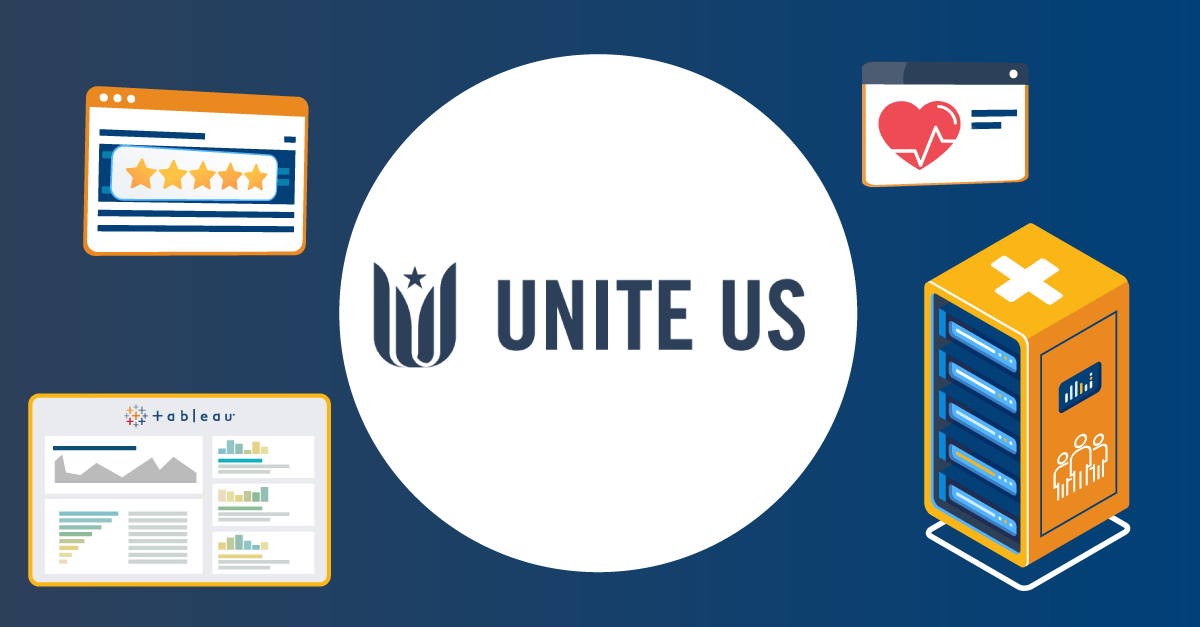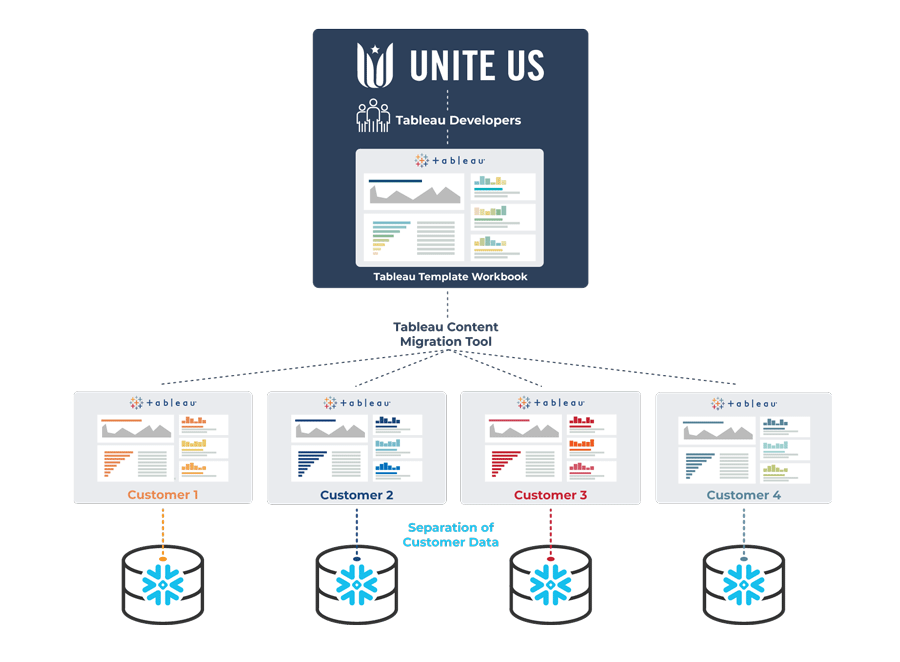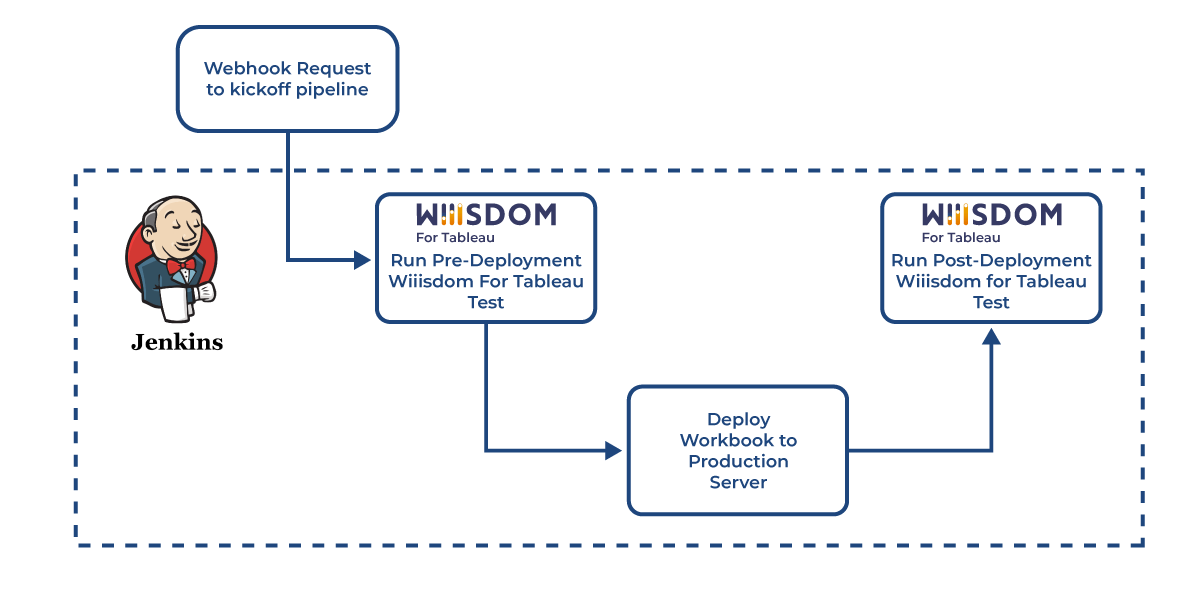Lire cet article en Français ![]()
Tableau Testing Scenarios
For Embedded Analytics
At Unite Us

Introducing Unite Us
Unite Us has compiled one of the largest healthcare consumer databases in the United States with the ability to have a 360-degree view of how individuals interact with healthcare providers. Its database allows them to understand consumer’s behaviors and desires within the healthcare and health insurance space. This is achieved by bringing together consumer data along with clinical datasets from their customers and combining it with public market data and surveys. Its platform is deployed leveraging various predictive models to synthesize all of this data into embedded Tableau dashboards within the SaaS product that they offer to healthcare companies.

Insights into Unite Us’ consumer dataset.
Ensuring trust at all levels is a must for Unite Us and here at Wiiisdom, we are built upon helping healthcare organizations have trusted analytics in order to make the best decisions. Unite Us implemented our solution for their Tableau testing scenarios and in this article, Alex Sweet, Director of Data Engineering at Unite Us will explain to us just how it’s done.
Leveraging Tableau At Unite Us
Unite Us leverages Tableau as its primary visualization engine within its SaaS MarketView product. Currently, the Tableau developers at Unite Us are responsible for creating new dashboards and completing changes to KPIs, bar charts and other Tableau elements. These changes are done in a single template workbook. As a healthcare organization, they are very careful with how they separate their different customer’s data but need to aggregate it with their other data sources to deliver the most value to their customers. Unite Us follows a strategy where their data is physically separated between different Snowflake data warehouses for different customers and so they rely on the same data models to deploy content to different customers using that template workbook. They use the Tableau Content Migration Tool for this part of the deployment to enable them to ‘lift and shift’ the template workbook to different customer’s workbooks, changing elements such as the data source, parameters, or calculation values to give a more customized look to different customers.
Of course, it comes with the challenge of delivering a SaaS product through Tableau and following the traditional software development processes at the same time, hence, why Unite Us has been searching for solutions able to infuse a lot of the Tableau governance processes. They have the goal of improving version control, scaling Tableau with a CI/CD approach, and most importantly, testing, and this is where Wiiisdom for Tableau found its place.

Tableau Testing Scenarios Using Wiiisdom for Tableau
Wiiisdom for Tableau became part of its strategy to create a balance between shorter development cycles and the traditional software development processes. Unite Us leverages Wiiisdom for Tableau for three different scenarios:
Phase 1: Did any features/functionalities within the workbook break due to changes within the workbook?
This first phase for Unite Us includes three types of testing:
1. Performance testing
This is to check that they’re providing a good user experience by meeting the desired load and interact performance criterion.
2. Regression testing
This testing includes checking filters, parameters, worksheets, data summary export, and dashboard layout between a baseline of the same view taken earlier and the current view. This testing is key in keeping consistency and making sure there were no changes to workbooks.
3. Functional testing
Functional testing allows our customer to do thorough checks around the data and the design and the stability of the workbook. Here are some of the functional tests Alex and his team carry out:
- Assert Data rule (validates the data in your Tableau Worksheet based on a set of rules defined within the task)
- Assert Filter type (categorical or quantitative, range or date range)
- Assert Parameter value – check the default parameter selection on the view
- Assert Calculations – Compare results between Tableau view and database
- KPI calculation
- Data-driven parameter list matches configuration table
Phase 2: Did our workbook “break” by having this customer’s data flow through it?
The next phase is pre-deployment testing and this is the last stage between deploying the workbook and production. Here Unite Us does two types of testing:
1. Functional testing
This is some lighter testing to validate that the data and workbook design is matching and flags any potential issues before production. Tests include:
- Assert data rule – check if data extract was completed successfully
- Assert Parameter values – check the default parameter selection on the view
- Assert Calculations – Compare results between Tableau view and database
- KPI calculation
- Data-driven parameter list matches column configuration table
2. Cross-Environment testing
This test compares the template version and the customer version of the workbook being deployed to check the existence of parameters, worksheets, and the layout is as it should be.
Phase 3: Did our workbook get deployed to our production server with no issues?
Once the workbook is in production, Unite Us wants to validate that the deployment caused no issues. Here they do some simple light-weight testing to avoid any harm to the user experience:
1. Functional testing
They simply check that users can open the visualization and that the simple interactions with the data are working.

Unite Us’ Jenkins pipeline for pre-op and post-op testing.
By implementing Wiiisdom for Tableau, Unite Us has managed to reduce the manual testing efforts and increase the quality of the dashboard deployments. Overall, they are saving approximately 25 hours per month across hundreds of deployments thanks to our Tableau testing solution.
Follow In The Footsteps Of Unite Us
Implementing Wiiisdom for Tableau at Unite Us has allowed them to have confidence in the data of every workbook that is deployed thanks to the different Tableau testing scenarios of their workbook deployments. We want all our customers to trust their analytics and having automated testing in place will help organizations achieve just that. Are you ready to put a testing plan in place with Wiiisdom for Tableau?

